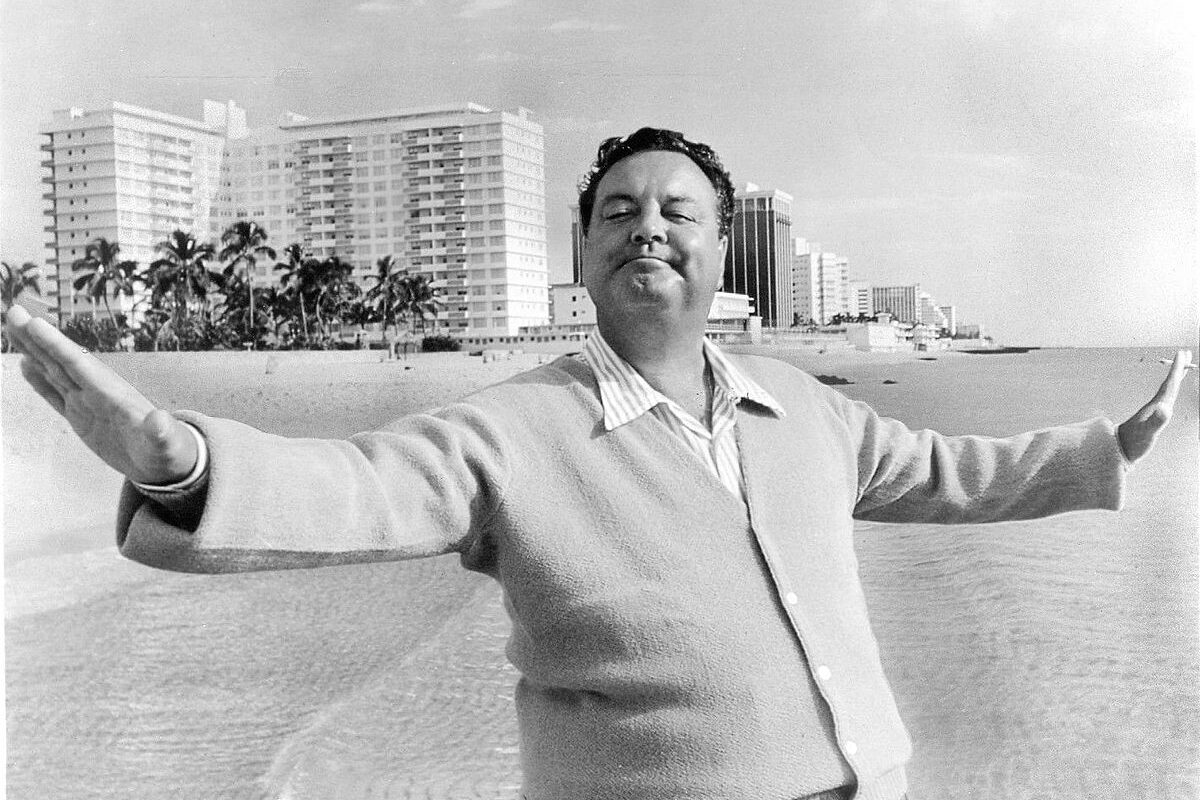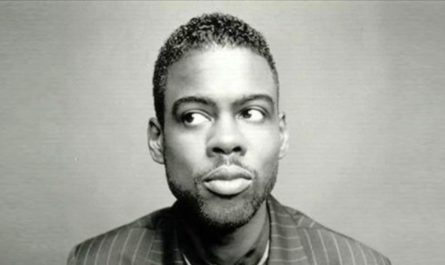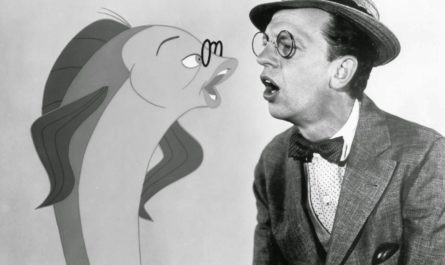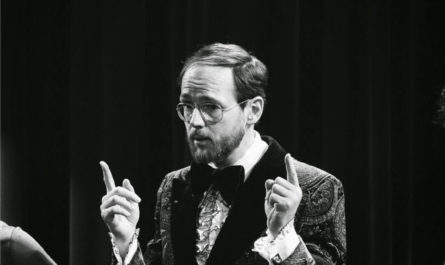JACKIE GLEASON: February 26, 1916 – June 24, 1987
During a recent interview with Howard Stern, musician Dave Grohl shared a story about his daughter questioning how late Nirvana frontman Kurt Cobain could be so dynamic and captivating on stage despite being painfully shy and prone to anxiety offstage. None of Grohl’s descriptions of Kurt struck me as mysterious or contradictory. On the contrary, they made perfect sense to me. It is said that fear of public speaking outweighs even the fear of death for many people; I am quite the opposite. I have always enjoyed the stage. I may experience jitters from time to time, but never the level of nerves I see in other artists. I am certain that – like me, and like Kurt Cobain – many artists communicate better through performance than through intimate conversation. I certainly have found myself completely tongue-tied during many critical conversations. My wife has learned through painful trial and error that when I am completely mute in person, she can allow me to go off on my own and write down what I’m feeling. Performance is a shield. Creativity is a shield. And like all shields, we can use it to protect ourselves enough to follow the path we’d otherwise be too afraid to forge. Or we can hide behind and be a complete bastard. Sadly, both options are equally available. This is why I never forget about the genius of Jackie Gleason, and just what a true bastard he was.
To say I loved Jackie Gleason as a kid would be a massive understatement. Burt Reynolds had been my favorite actor since I saw Smokey & The Bandit when it was released in 1977. Gleason’s character, Sheriff Buford T. Justice, was so delightfully crude and self-important, I couldn’t help but quote his most famous lines (when my parents weren’t around, of course). Sometime around 1980, the local UHF station started broadcasting reruns of The Honeymooners every night at 9 pm. When I realized that Ralph Kramden was played by the same actor, I couldn’t watch the reruns enough. My bedtime was 9 am, but I had a small black-and-white TV set in my bedroom, and if I knew my parents were downstairs watching TV, I would turn on The Honeymooners and watch Jackie Gleason steal scene after scene.

Jackie Gleason’s talent was immense. The fact that he gave himself the nickname “The Great One” certainly hints at a difficult personality, but it’s not a guarantee. (In later years, he would alternatively credit Orson Welles and Lucille Ball with giving him that nickname.) After all, Muhammad Ali regularly referred to himself as the “Greatest of All Time”; truthfully, both monikers are fairly apt. Jackie Gleason truly was one of the greatest comedic actors of all time. His accomplishments are even more impressive when you realize that he refused to rehearse (mostly because it got in the way of drinking and golf), and would show up as actors and sets were being dressed for live air. He would quickly read the script, ad-lib most of his lines, and require everyone in the cast to improvise if (or more likely, when) things would go off the rails. And when the improvisation worked at its best – with actors giving honest, supportive performances, each trying to make the others look good – it was pure magic. And even when it was bad, Gleason (and co-star Art Carney) were funny enough to cover it up. When it was all said and done, Gleason would arrive at the last minute (probably drunk), make massive unplanned changes, force the entire production to follow his chaotic lead, and would leave immediately after the show ended. Yet he insisted on a production credit at the end of the show which said, “Entire production supervised by Jackie Gleason”. How did an environment so infuriating last for four years? Because he was also really god-damned funny.
But The Honeymooners is a high-point in a career of broadly-scattered peaks with increasingly-expanding fallow periods in between. When The Honeymooners went off the air in 1956, Gleason performed just one role in the next five years, a critically-acclaimed dramatic performance in William Saroyan’s “The Time Of Your Life” on Playhouse 90. Then, in a two-year burst between 1961 and 1963, he delivered bravura performances in The Hustler, Gigot, Requiem for a Heavyweight, and Soldier In The Rain. What followed this star-making period? 14 years of relative obscurity, until Smokey & The Bandit.
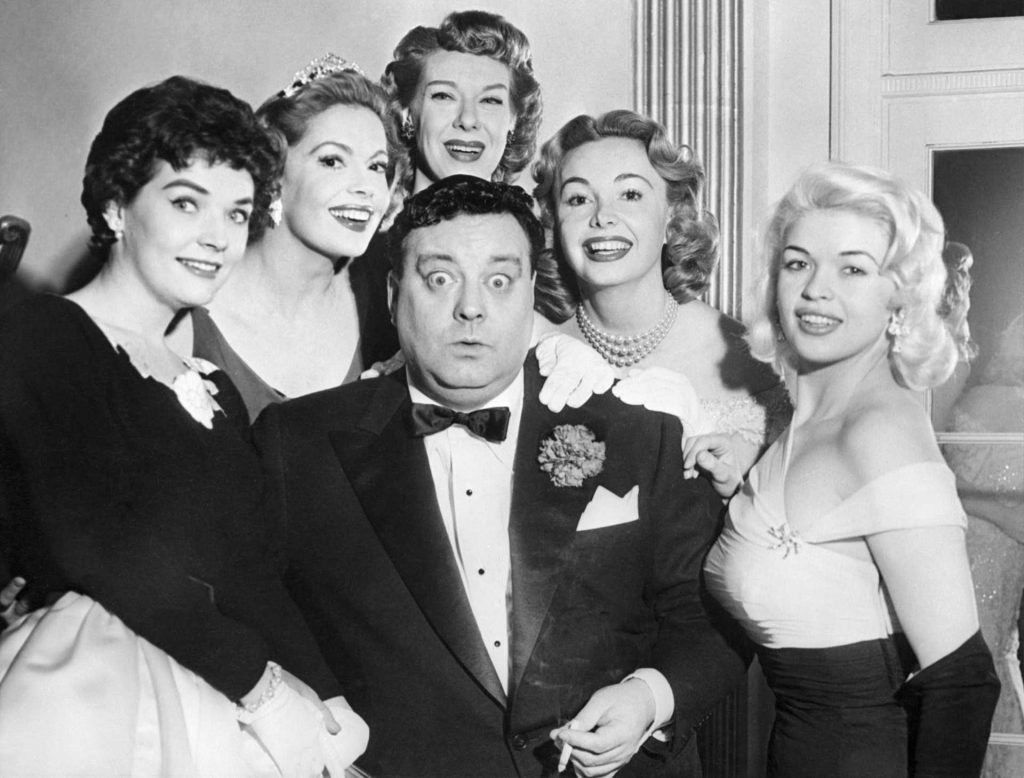
It was a career arc that can only be explained by a difficult personality. For all his talent, Gleason demanded constant reassurance in the form of extra perks and attention. With every contract, he demanded the largest limousine in the world, once going so far as to once require a studio to slice the vehicle in half and add three inches of length to it. He would regularly demand multiple limousines and park one at each door to the studio, just so he could leave through any door he chose without having to walk extra steps. He would famously tip cocktail waitresses obscene amounts of money, and then fight with the studio to ensure co-stars and invaluable production team members got as little as possible. For years, he was considered a world-famous composer, arranger, and bandleader. Gleason openly promoted the fact that he couldn’t play an instrument and could not read or write a single note of music. He released over 40 albums of his big band music and retained publishing rights to most of them. Bobby Hackett, his trumpet player who did all of the writing and arranging and conducting, was paid union scale for all of his efforts. When Gleason forced the television studio to move production from New York to Miami (so he could play golf year-round), he demanded an entire train to take the trip. Instead of bringing his staff or co-stars, he filled the train with drinking buddies, musicians, and prostitutes. Everyone else was forced to pay their own way for his relocation.

His personal relationships were equally strained. He drank ceaselessly. Often drunk to the point of sickness, he believed vomiting on strangers to be the height of humor. He would grant his wife and children exactly 30 minutes with him every Christmas morning, and then he would go drinking and carousing with his friends. At night, he liked to get drunk and disrupt nightclub comedians, because he was too insecure to let anybody else get a laugh in his presence.
We don;t need to dig too deeply into Jackie Gleason’s history to be able to hazard a guess where all of this contradiction originated. Growing up poor in the Bushwick section of Brooklyn, Jackie’s older brother died of tuberculosis when Gleason was 3. His father, a henpecked insurance agent with a drinking problem left the family when Jackie was nine. His mother took to working multiple jobs and left young Jackie alone most of the day and night. She died when Gleason was 14, and Gleason took jobs at local bars to make a living. He liked to drink and quickly learned that he could be entertaining after a few drinks. Few environments are more tailor-made for self-destructive narcissism and addiction. Sadly, few environments are better for someone to lose themselves in their art as a means of long-withheld self-expression. (See: John Lennon, Franz Kafka, Brian Wilson, Marina Abramovic, etc., etc.) Soon, he realized that “drunk Jackie” and “funny Jackie” could bring the house down, with no preparation or planning. He’d often brag about being incapable of ever remembering anything he’d said to make people laugh. To Gleason, this was proof that he was the most innately funny human on earth, hilarious every time he allowed himself to be. Which is probably true… in part.
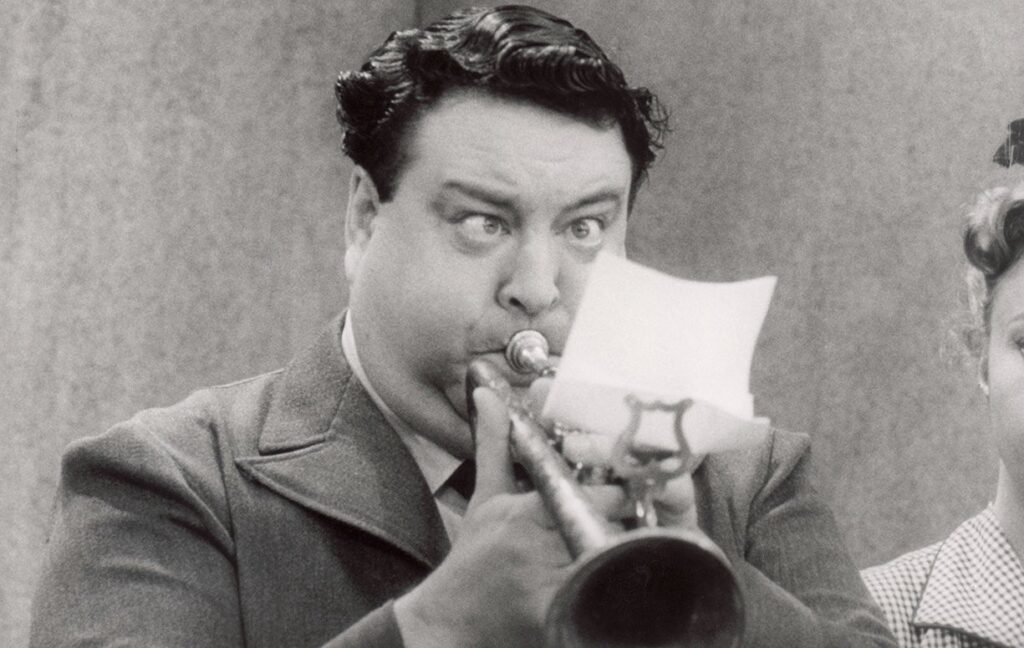
But what is equally as likely is that Gleason’s humor was his attempt to communicate with the world honestly. It was Gleason demanding love the way a baby demands love – by making itself the center of attention. In many ways, Gleason’s humor was no more complicated than a baby’s cry; it was a vocalized request for someone to remind him that he was loved. That he was important. That, for just a moment, he was the most important thing in the room. It may sound and feel like armchair psychology (and it may be), but the older I get, the more I realize that most of our interactions are just that: veiled demands to nurture an underlying emotional need. Because Gleason’s abhorrent behavior towards the people whom he needed the most also indicates a similar reaction. The same person who spent a life formed by rejection, loss, and isolation spent his entire life convincing everyone close to him that their relationship would be based on that same foundation. Part of the psyche of trauma demands to be considered, but it is always at odds with an evidence-based part that clearly remembers – and anchors us in – the past. When Jackie Gleason died, two of his three ex-wives and some of his children did not show up to pay their respects. Audrey Meadows, who played his wife Alice on The Honeymooners was the only other actor who showed up to pay their respects. Audiences missed him, certainly. I remember feeling very sad to hear of his passing. But he was always there for us; his friends and family did not receive the same attention.
Every artist should honor the artistic voice that feeds that innate need to be considered. The need to be attended to. The need that lets us know that – to someone – we are important and for a moment, that we are the focus of their world. But we also have to attend to the needs of others, and that voice is just as easily communicated through our actions and behaviors.
If there is a lesson in Jackie Gleason’s life, it’s to never attend to the former without equally attending to the latter. Otherwise, we risk an imbalance too destructive for even the greatest of talents to overcome.

